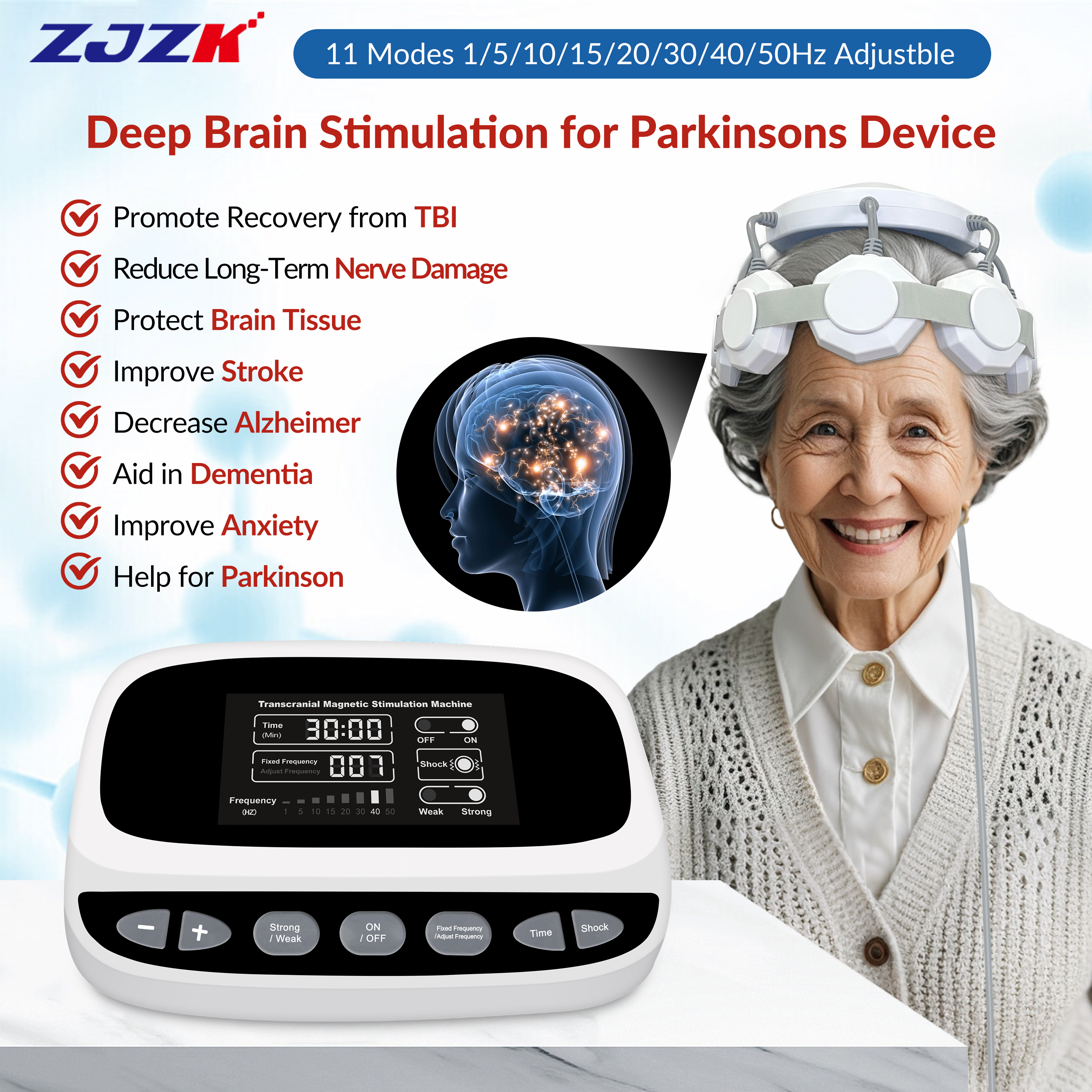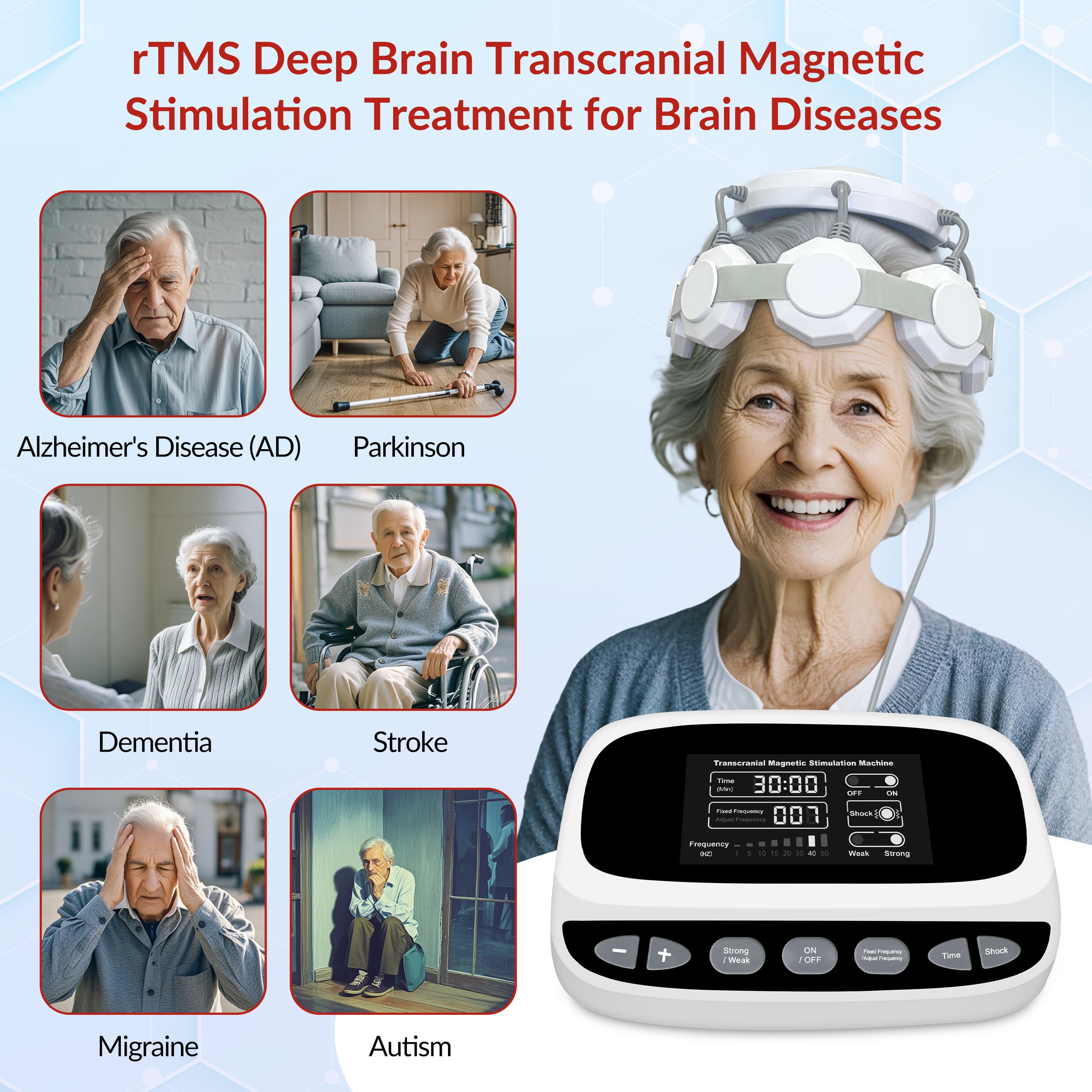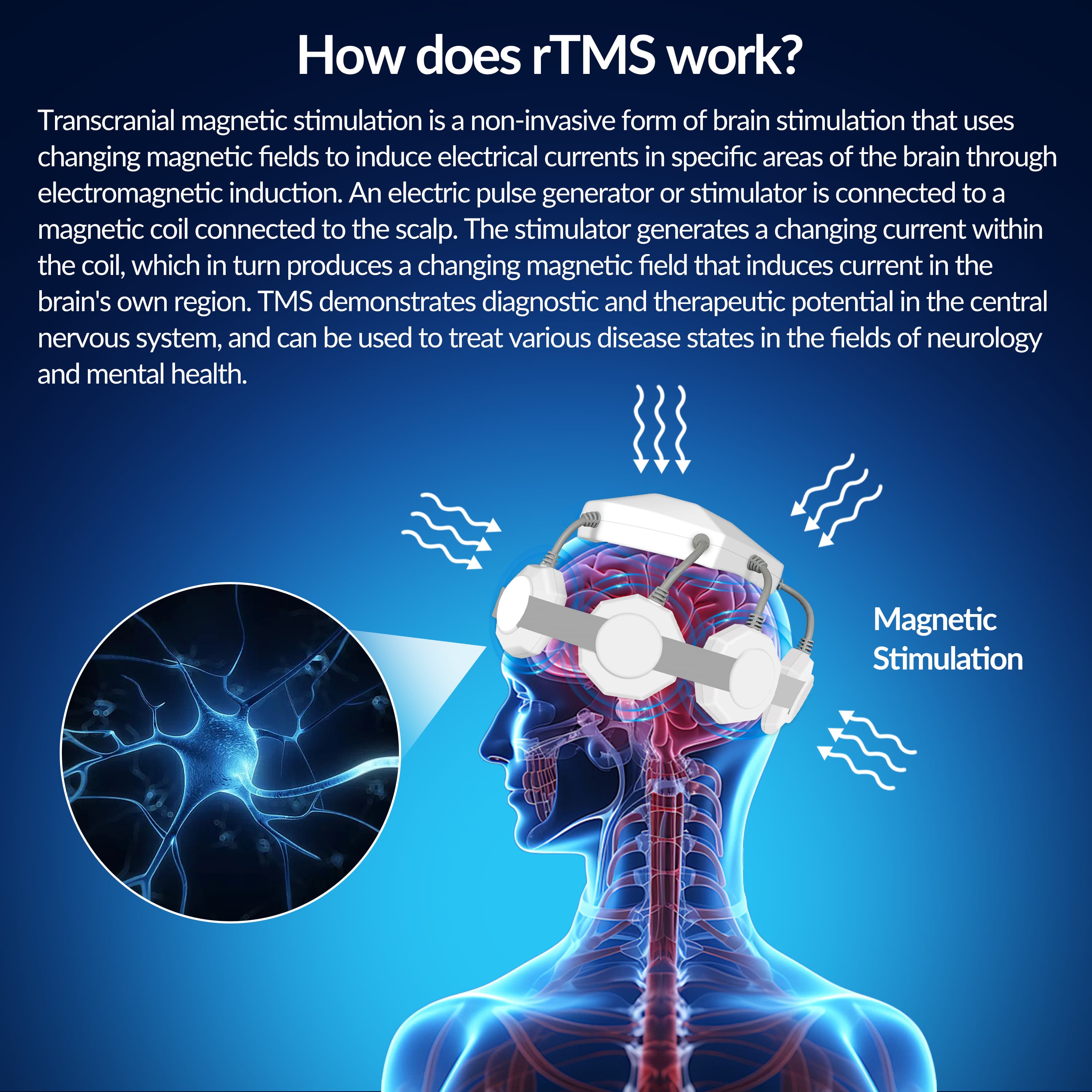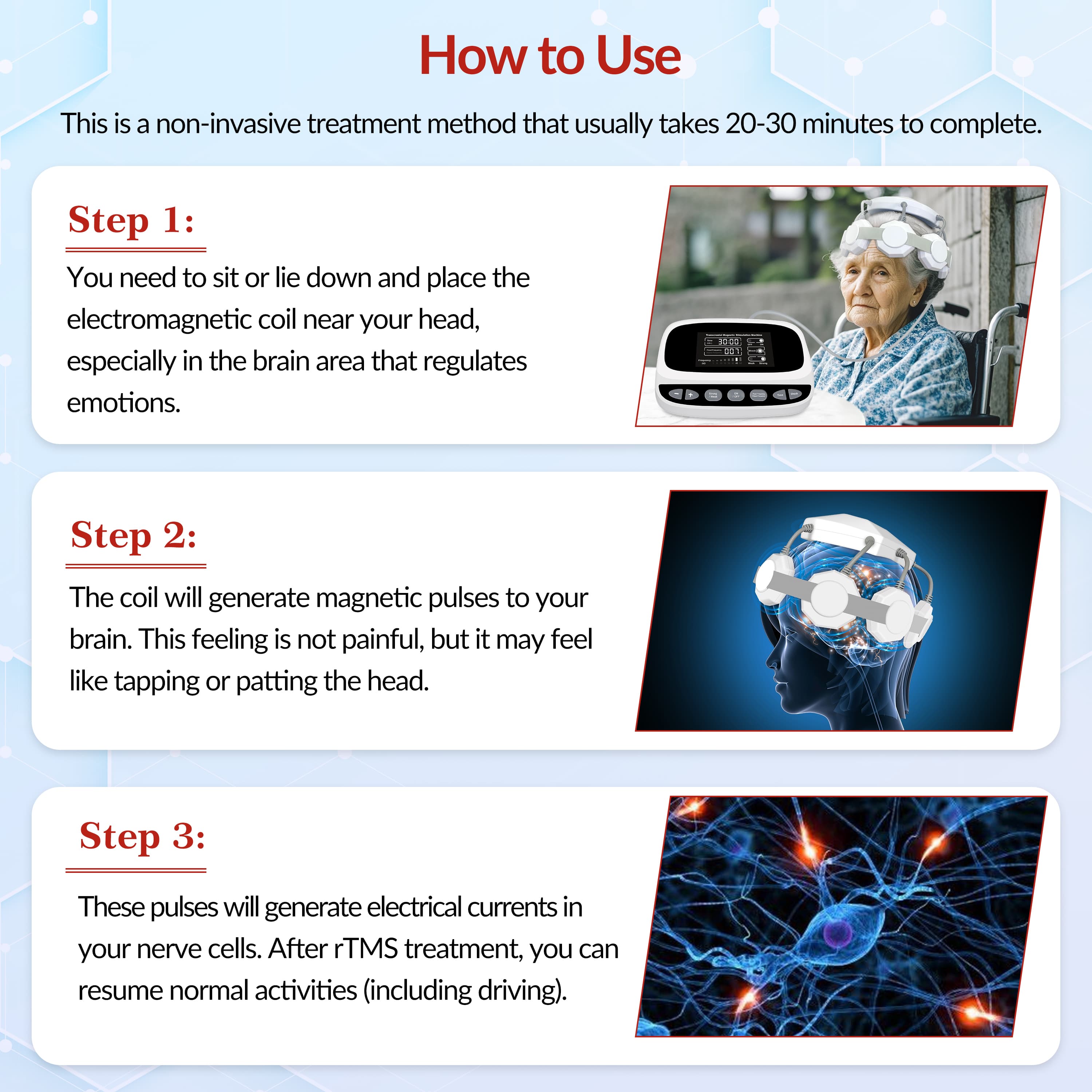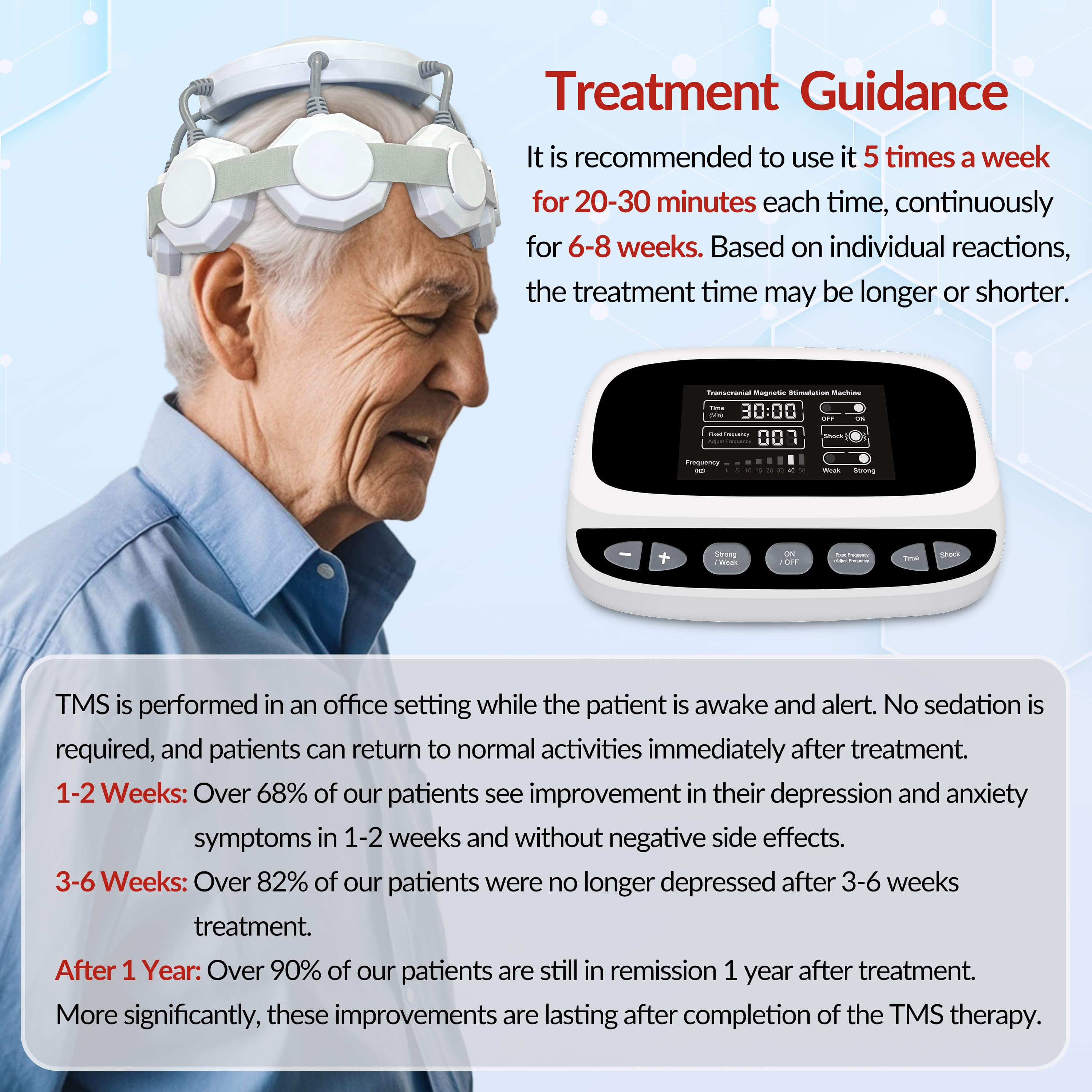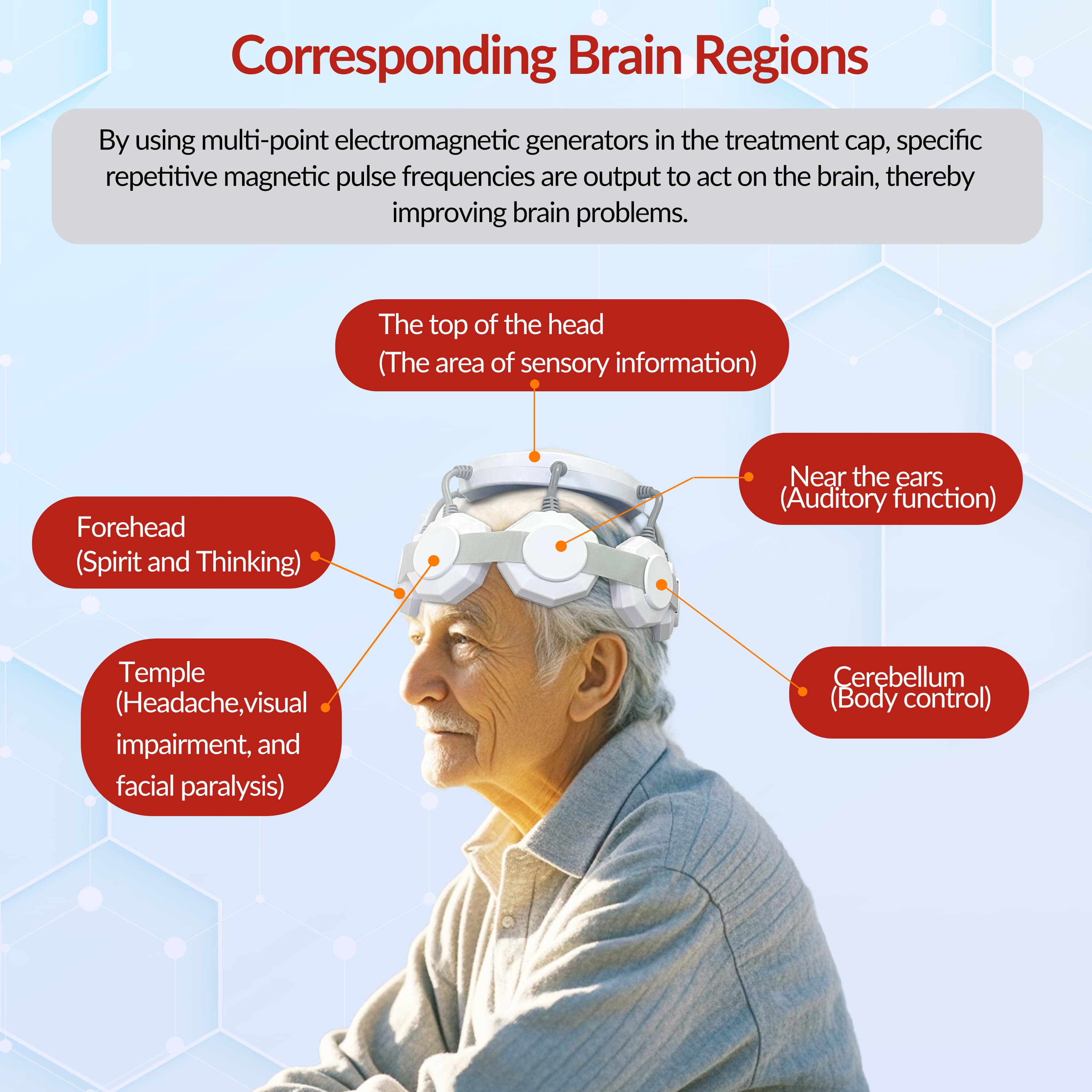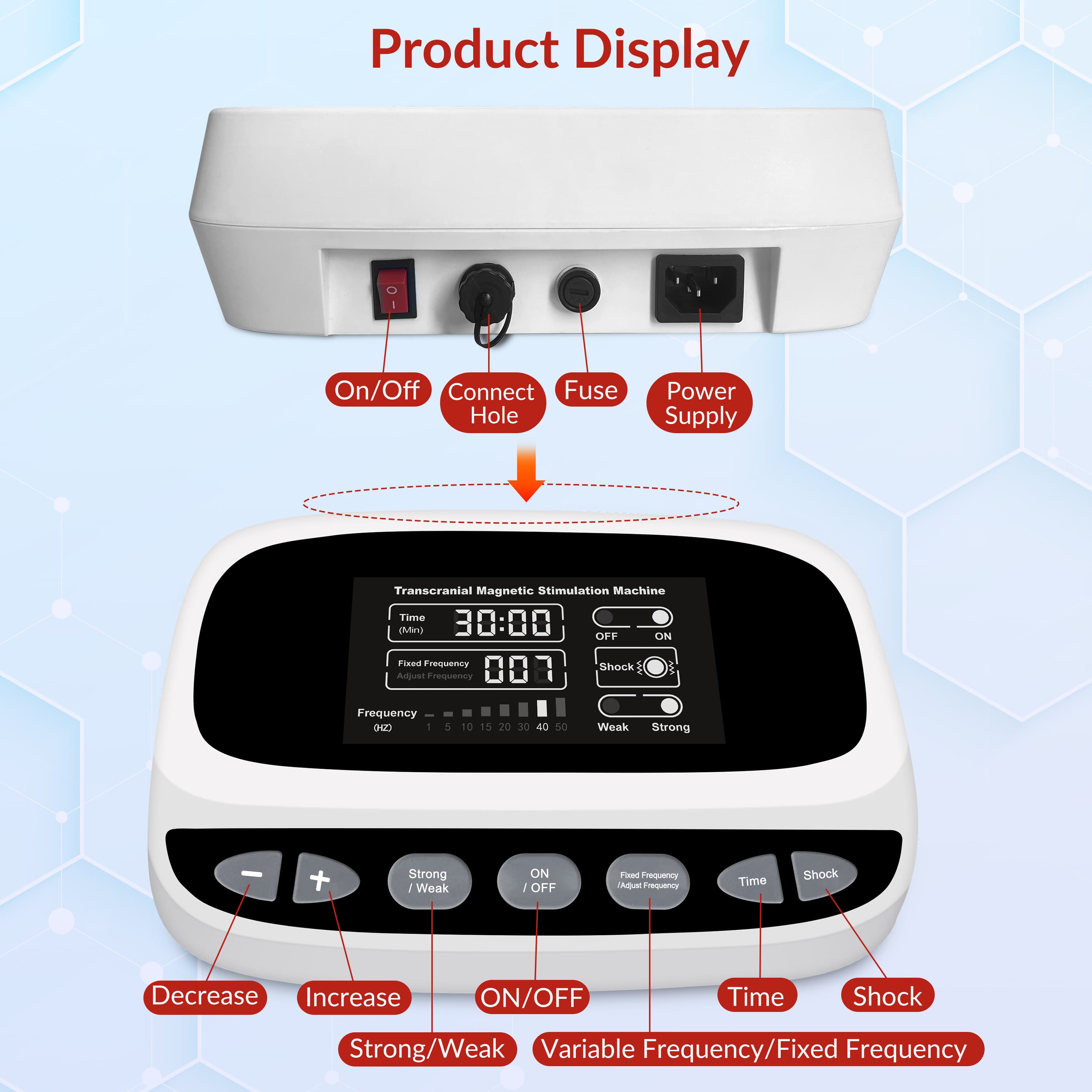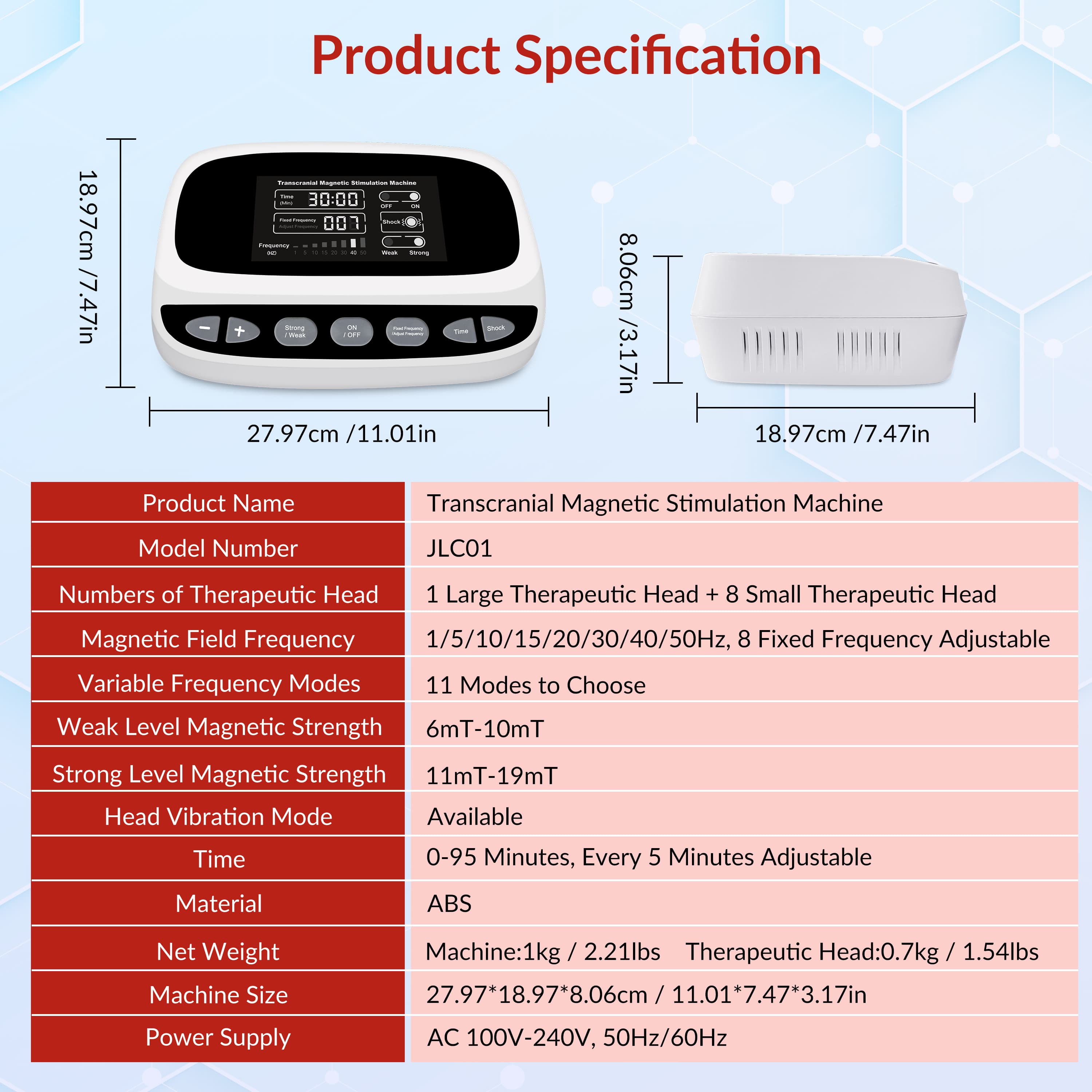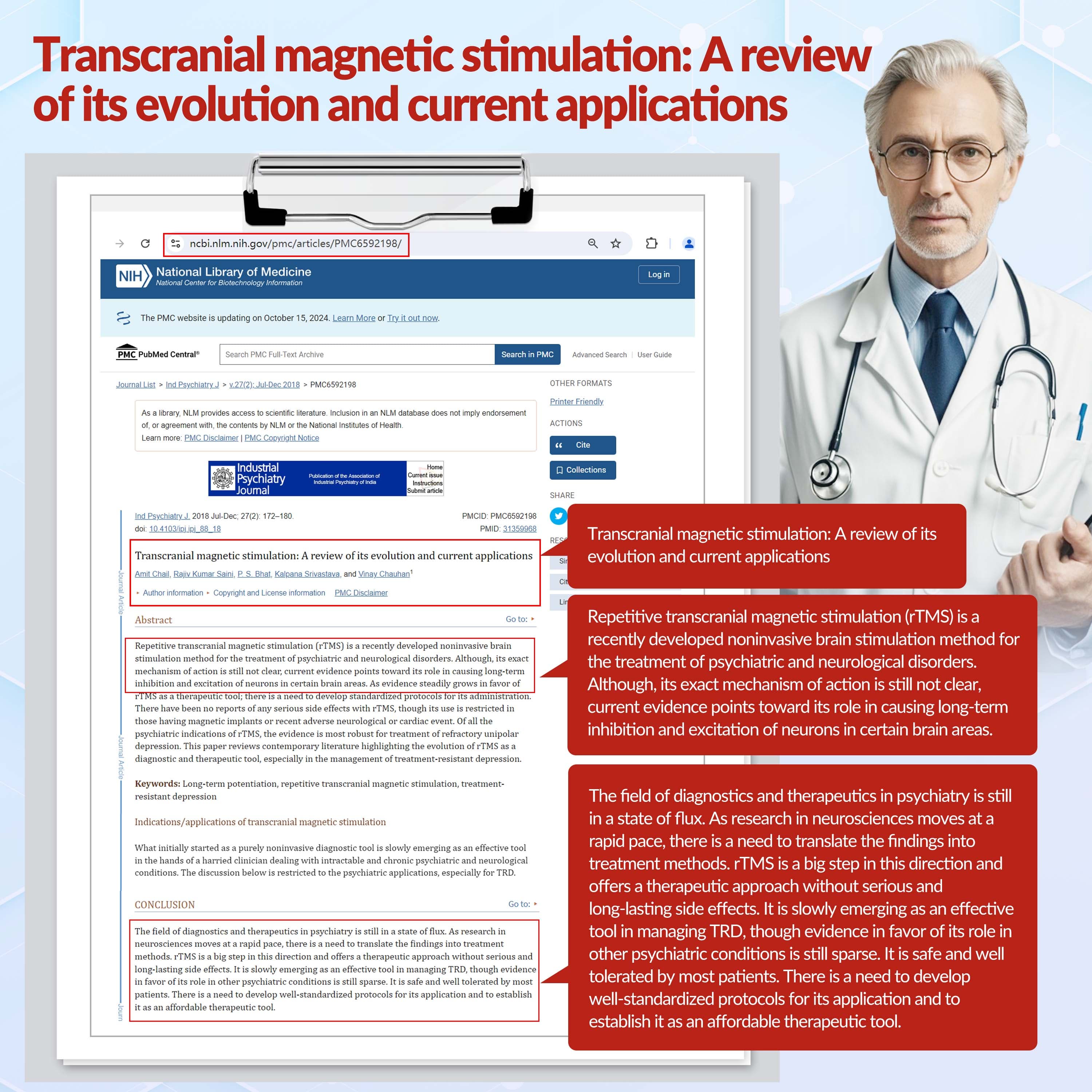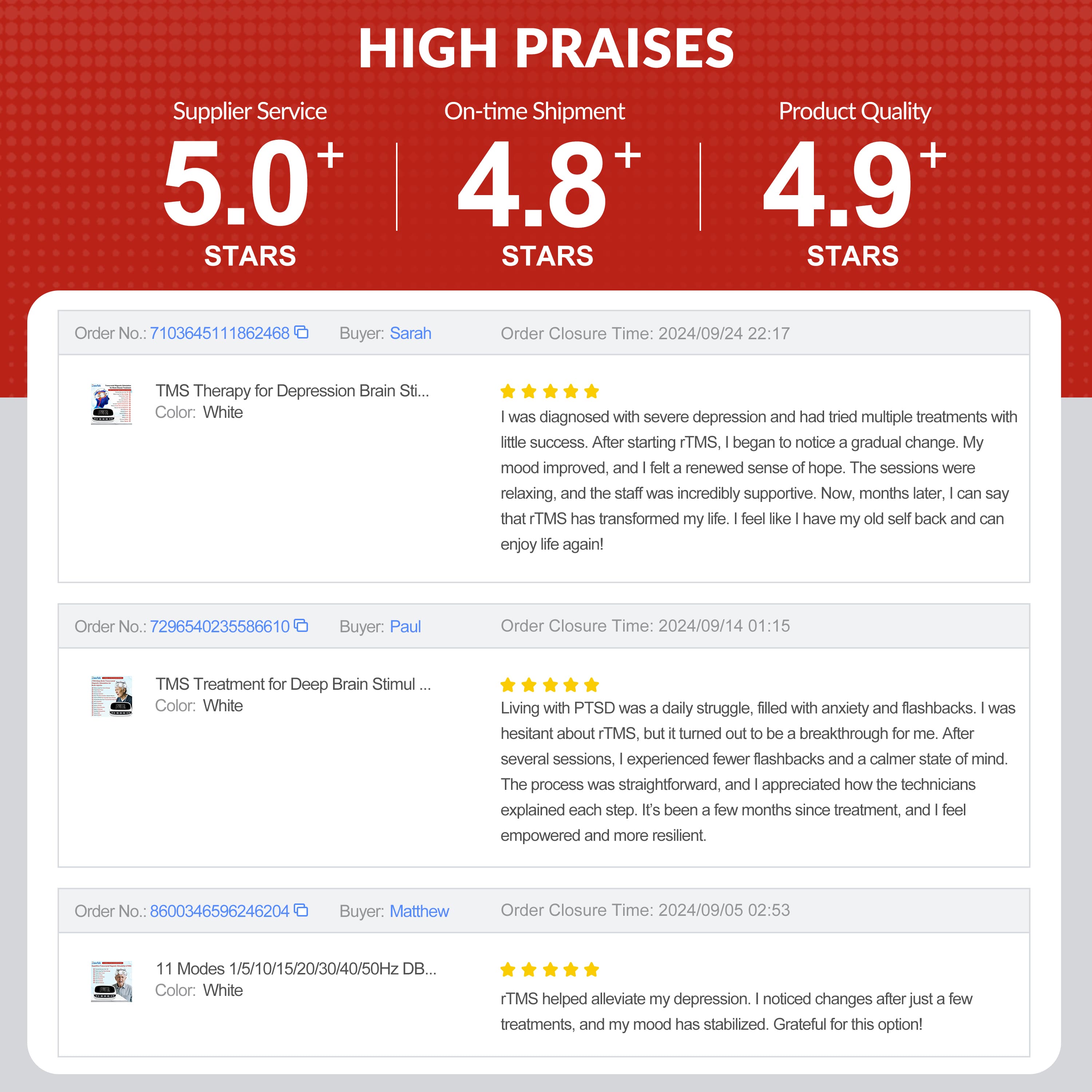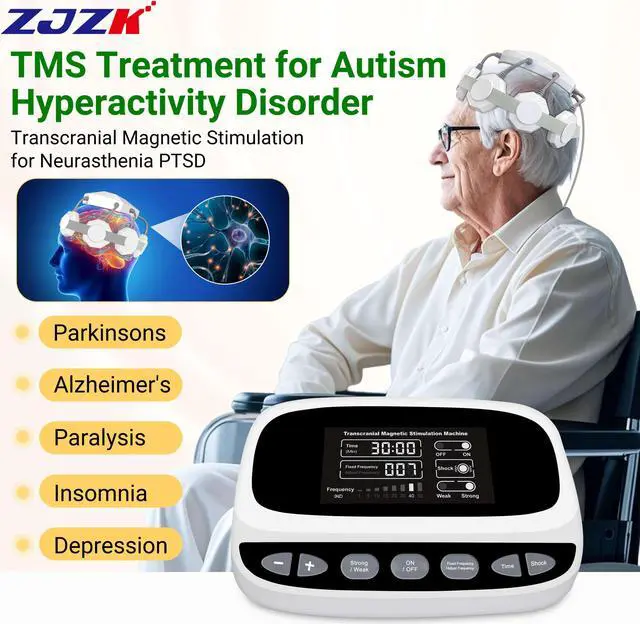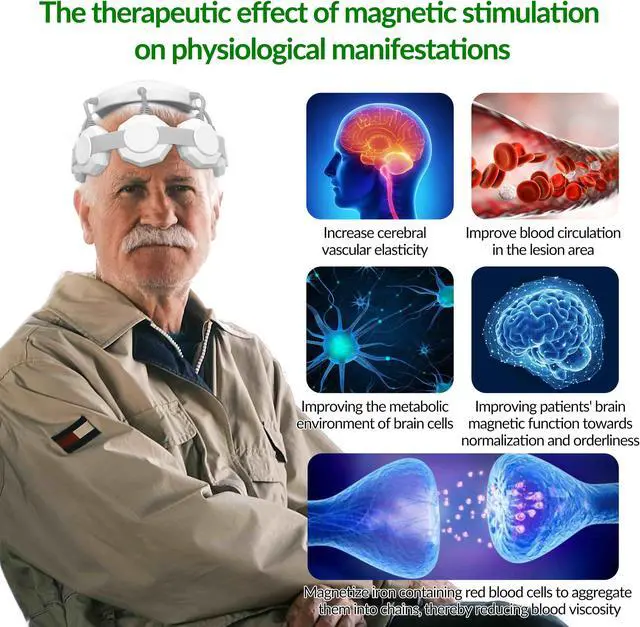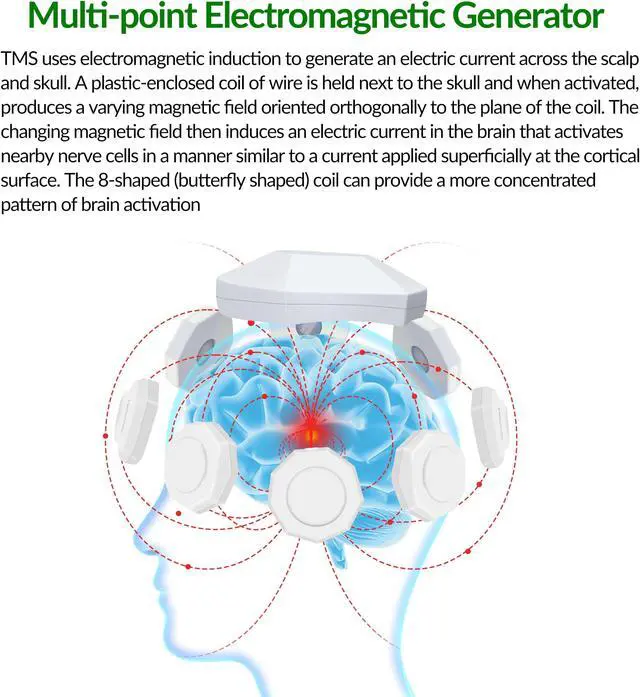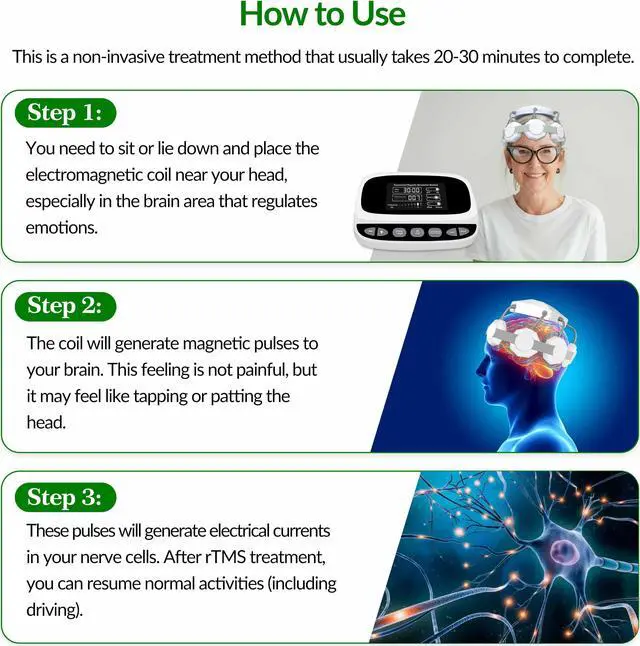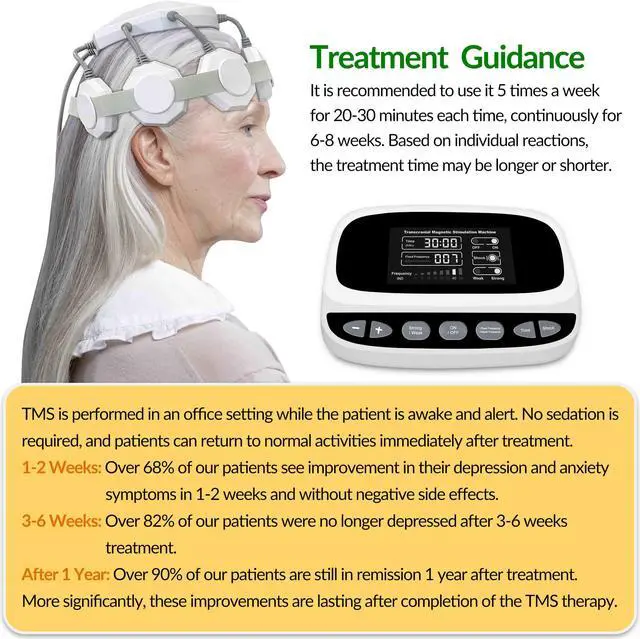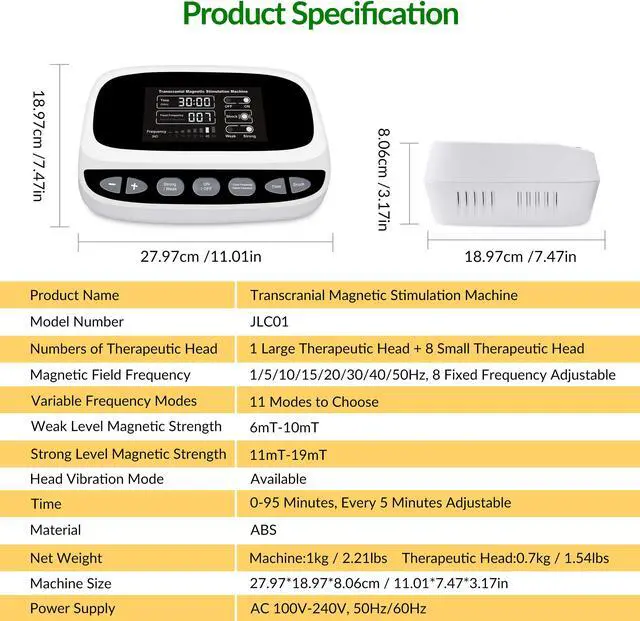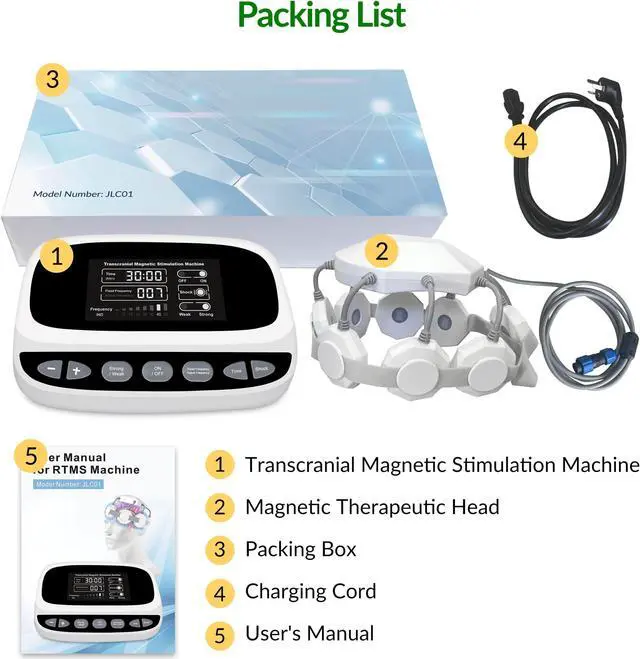TMS Transcranial Magnetic Stimulation TherapyTMS therapy machine is a kind of therapeutic equipment for brain diseases developed by using the push-button control mode, based on the brain physiology, biophysics and clinical encephalopathy therapy, integrating repetitive transcranial magnetic stimulation (rTMS) and electric stimulation theory, and applying. Magnetic stimulator cap has the characteristics of light weight, small volume, applicable to people with different head circumference and comfortable to wear.
Principle of TMS TreatmentTMS transcranial magnetic stimulation outputs specific regular alternating electromagnetic field to act on brain cells and cerebral blood vessels in order to change the metabolic environment of the lesion area, so that the enzyme activity involved in metabolism is increased. Tests have proved that the use of transmagnetic therapy can expand cerebral blood vessels and promote blood circulation; on the damaged brain cells can play a role in promoting metabolism, enhance
its repair ability: interference and inhibition of abnormal cerebral electricity, cerebral magnetism and propagation of the occurrence.
Application of Transcranial Magnetic Stimulation TherapyrTMS treatment is a painless, non-invasive, and no side effect treatment method. 1, Transmagnetic Stimulation can treat Alzheimer Stroke disease; 2, Treat motor diseases(e. g. Parkinson's disease); 3, Alleviate psychiatric diseases, such as depression, anxiety; 4, Relieve chronic neuropathic Pain; 5, Improve amyotrophic lateral sclerosis, multiple sclerosis; 6, Improve disorders of consciousness (e. g. vegetative state or minimally conscious state).
Multi-functions of rTMS TherapyTranscranial Magnetic Treatment has 8 fixed frequency modes: 1/5/10/15/20/30/40/50Hz, adjustable; Transmagnetic stimulation therapy has 11 frequency conversion modes to choose from; Magnetic field strength of transcranial therapy can be optional: strong(11mT-19mT), weak(6mT-10mT); Shock, no shock optional;
Time: 0-95 minutes, adjustable. the transcranial magnetic brain stimulation is recommend 20-30min each time, 5 times a week, continuously for 6-8 weeks or more.
Package
Details
of TMS Therapy TreatmentSafe and Effective. includes 1*Transcranial Magnetic Stimulation Machine+ 1set*Magnetic Therapeutic Head, 1*Charging Power Supply, 1*User's Manual, and 1*Packing Box. Also we provides one year warranty. More detail information, please see the product manual. If you have any questions about our transcranial magnetic stimulation treatment, please contact us. We are committed to providing you with satisfactory services.
What is Transcranial Magnetic Stimulation (TMS)?
Transcranial Magnetic Stimulation (TMS) is a procedure that uses magnetic fields to stimulate nerve cells in the brain to improve brain disorders (such as Depression, Obsessive Compulsive Disorder, Migraine, Smoking Cessation). It is a safe and effective non-invasive treatment. When used to treat brain disorders, this treatment involves sending out repetitive magnetic pulses, so it is called repetitive TMS or rTMS. During TMS treatment, highly focused electromagnetic pulses are applied to the scalp using an insulated coil. The magnetic pulses are applied in rapid sequence and extend to the area of the brain that is damaged by the disease.
This treatment method was first developed in 1985 and is now widely used to treat a variety of mental health and brain-related disorders.
Working Principle of rTMS:
1.
Magnetic Coil:
A magnetic coil is placed on the scalp, usually over the prefrontal cortex (a region often linked with mood regulation).
The coil generates a rapidly changing magnetic field, which can penetrate the skull and induce electric currents in the underlying brain tissue.
2. Induction of
Electrical Currents:
The magnetic field induces small electrical currents in the brain. These currents can depolarize neurons (nerve cells) in targeted regions, effectively stimulating or modulating their activity.
3. Stimulation of
Neurons:
Depending on the frequency and pattern of the magnetic pulses, rTMS can either increase or decrease the activity of specific brain regions.
High-frequency rTMS (e. g., 10
Hz and above): Typically enhances neuronal activity in the targeted area.
Low-frequency rTMS (e. g., 1
Hz): Generally suppresses neuronal activity.
4. Repetition and
Neuroplasticity:
The "repetitive" nature of the treatment involves delivering these pulses repeatedly over multiple sessions. This repeated stimulation can lead to lasting changes in neuronal connectivity and function, a process known as neuroplasticity.
Product
Specifications
Product Name: Transcranial Magnetic Stimulation Machine
Model Number: JLC01
Number of Therapeutic Heads: 1 Large Therapeutic Head + 8 Small Therapeutic Head
Magnetic Field Frequency: 1/5/10/15/20/30/40/50Hz, 8 Fixed Frequency Adjustable
Variable Frequency Modes: 11 Modes to Choose
Weak Level Magnetic Strength: 6mT-10mT
Strong Level Magnetic Strength: 11mT-19mT
Vibration Function: Magnetic Therapy Head Vibration Mode
Time: 0-95 Minutes, Every 5 Minutes Adjustable
Material: ABS
Net Weight:
Machine: 1kg / 2.21 lbs;
Therapeutic Head: 0.7 kg / 1.54 lbs"
Machine Size: 27.97 * 18.97 * 8.06 cm / 11.01 * 7.47 * 3.17 in
Working Voltage: AC 110V-240V, 50Hz/60Hz
What rTMS Can Treat:
1.
Major Depressive Disorder (MDD):
In depression, certain areas of the brain (particularly the left dorsolateral prefrontal cortex) may show reduced activity. High-frequency rTMS can stimulate this region, enhancing its activity and improving mood.
2.
Anxiety Disorders:
Anxiety disorders are often associated with abnormal activity in specific brain circuits. rTMS can modulate these circuits, particularly by stimulating or inhibiting areas like the prefrontal cortex.
3.
Obsessive-Compulsive Disorder (OCD):
OCD involves overactivity in certain brain regions, such as the orbitofrontal cortex. Low-frequency rTMS can help reduce this overactivity, leading to symptom relief.
4.
Post-Traumatic Stress Disorder (PTSD):
PTSD is associated with dysregulation in the brains fear and memory circuits. rTMS can help recalibrate these circuits, reducing symptoms like hyperarousal and intrusive memories. Clinical trials suggest that rTMS can be beneficial for PTSD.
5.
Neuropathic Pain:
Neuropathic pain involves abnormal nerve signaling. rTMS can modulate pain-processing regions in the brain, reducing pain perception. Some patients experience significant pain relief, particularly when other treatments have failed.
6.
Migraine:
Migraines involve abnormal brain excitability. rTMS can help by normalizing activity in regions associated with pain and headache triggers. rTMS has been shown to reduce the frequency and intensity of migraines in some patients.
7.
Stroke Rehabilitation:
After a stroke, affected brain areas can show reduced activity. rTMS can stimulate these areas, promoting recovery of motor and cognitive functions. rTMS has shown promise in improving motor recovery and speech in stroke patients.
Treatment Guidance
This is a non-invasive treatment method that usually takes 20-30 minutes to complete.
Step 1: You need to sit or lie down and place the electromagnetic coil near your head, especially in the brain area that regulates emotions.
Step 2: The coil wil generate magnetic pulses to your brain. This feeling is not painful, but it may feel like tapping or patting the head.
Step 3: These pulses will generate electrical currents in your nerve cells. After rTMS treatment, you can resume normal activities (including driving).
It is recommended to use it 5 times a week for 20-30 minutes each time, continuously for 6-8 weeks. Based on individual reactions. the treatment time may be longer or shorter.
